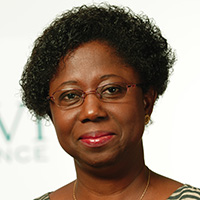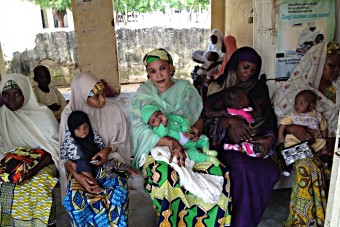Demand for measles vaccination

Mercy Ahun
GAVI’s Special Representative to GAVI Eligible Countries

I was at Yar Akwa health post in Kano, Northern Nigeria last Friday. We had 2 Community Health Extension Workers (CHEW) preparing to vaccinate about 15 children who have shown up with their mothers for the vaccination session. I started a discussion with the mothers on reasons for vaccinating their children.
They believe immunisation is critical for the well-being of their children. Measles was mentioned as the most feared vaccine preventable disease. It causes blindness, deafness and pneumonia among others. I was flooded with memories from the paediatric wards in Kumasi, Ghana where I did my house job as a newly qualified doctor; 3 -4 children squeezed into a cot with the complications mentioned above from a measles outbreak. This is why I got into public health. Ghana has improved routine measles coverage since then with no recorded measles death since 2003 (measles vaccine coverage was 91% in 2011).
I first heard about GAVI in November 1999 while on a short course on Epidemiology at the CDC in Atlanta. I had gone to the offices of the Hepatitis branch to solicit support for Hepatitis B vaccine introduction in Ghana’s immunisation programme. ‘Don’t you worry’, a staff member told me. An organisation called GAVI is going to be set up soon. They will solve all your problems. They will provide support for new vaccine introduction in developing countries. I heaved a sigh of relief and waited with bated breath for the creation of the new public-private partnership.
I was not disappointed. Ghana was one of the first countries to apply for GAVI support in June 2000. We introduced the pentavalent vaccine (five-in-one shot against diphtheria, tetanus, pertussis, hepatitis B and Hib) in December 2002. Other new vaccines followed.
By the end of 2011, GAVI had contributed to the immunisation of an additional 325 million children, who might not otherwise have had access to vaccines, and averted more than five-and-a-half million future deaths.
The GAVI Alliance Board in June 2012 approved support for measles supplementary immunization activities for Nigeria to sustainably prevent measles deaths.
